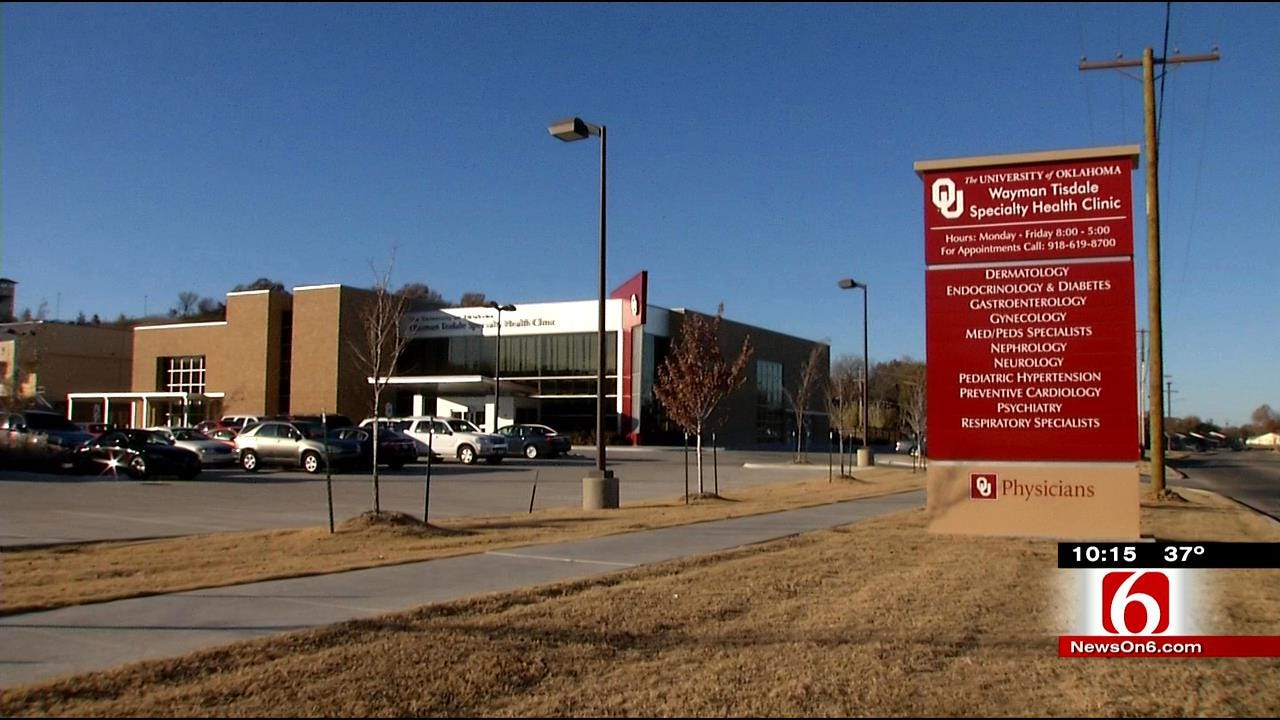Improving Health In North Tulsa Clinic's Way To Make State 'So Much More'
<p>Our eating habits have consequences that keep us from being "So Much More," which they're trying to turn around at the OU Wayman Tisdale Specialty Clinic in Tulsa.</p>Monday, March 2nd 2015, 11:18 pm
Oklahoma ranks 46th among the 50 states for heart disease; thousands of our loved ones die prematurely every year and that's just one factor of our “poor health" that's holding Oklahoma back.
For many of us early death begins at the dinner table.
Fill your plate with Oklahoma's official state meal, served-up by the legislature in 1988 as a way to boast of local fare; and though squash, corn, strawberries and black-eyed peas make it on that menu, we're eating more of the chicken-fried steak, biscuits and gravy, barbeque pork, fried okra, corn bread and pecan pie.
Our eating habits have consequences that keep us from being "So Much More," which they're trying to turn around at the OU Wayman Tisdale Specialty Clinic in Tulsa.
At 54, life's taken a toll on Darrell Williams who is fighting a battle familiar to so many.
“It's rough, I put on my big boy pants, but it's pretty rough.”
His mother died a couple of years ago, his wife's sick and he's her caregiver. He's dangerously overweight - battling high cholesterol and hypertension – with no health insurance; he's barreling towards a heart attack or stroke.
“I'm dealing with quite a few things that really threw me, and trying to maintain my health and trying to stay upbeat about it,” Williams said.
He is a living, breathing embodiment of Oklahoma's abysmal health rankings.
Trying to counter that with his Heart Improvement Program at the University of Oklahoma's Wayman Tisdale Specialty Clinic is Dr. Mark Fox. He has a goal to keep Darrell, and hundreds of others, living and breathing.
“So this area of north Tulsa has the highest rates of cardiovascular disease in a state that's among the worst in terms of cardiovascular disease. So I always describe north Tulsa as ground zero for cardiovascular risk,” Fox said.
In 2008, OU's School of Public Health released some startling research. It said though residents of north, east and west Tulsa make up 40 percent of the city's population, they had access to only four percent of the city's doctors, and, they live, on average, 14 years less than those who live in midtown and south Tulsa.
“That put things in stark terms that people could understand,” said Fox.
So, the university's Tulsa School of Community Medicine teamed with the city's philanthropies and opened the Tisdale Clinic two years ago.
“We said this is a moral imperative, this is not right we've got to make sure that, it shouldn't matter what your zip code is how long you're expected to live,” said OU president, David Boren.
2/19/2015 Related Story: OU President: Education Improvement Can Make State 'So Much More'
The Tisdale Clinic's mission is to throw out the old playbook and deliver healthcare in new and novel ways.
“Efforts to improve health literacy, to address poverty, to address violence, teen pregnancy, smoking, all these things have an impact on the health of the community,” Fox said.
The challenges of patient care there go far beyond the prescription pad.
“I can give you all the right answers out here in north Tulsa and say you need more fresh fruit and produce. And good luck getting it at the stores where you might buy food out here. You know, Dollar General doesn't have fresh fruit and produce,” Fox said.
What north Tulsa does have now are the 17 specialties offered at Tisdale, because specialty medical care was completely absent in that part of town before. Three of those specialties are exclusive to all of northeastern Oklahoma.
“It was a blessing when I went to St. John's Emergency Room,” Williams said.
Like so many of the uninsured, an emergency room was where Williams went for relief from his intense chest pain. At St. John, they suggested he become a patient at Tisdale.
“Man, it's a lifesaver,” he said.
Fox said, “So our goal is to identify people in this community with unusual risk, but especially those that have barriers to care, and the biggest barrier is lack of insurance.”
Tisdale patients are charged on a sliding scale if they're not covered by insurance or Medicare or Medicaid.
Williams has become an advocate among his friends and neighbors.
“When you see the people you grew up with - he's paralyzed on one side, this one's in a walker, they packin' an oxygen tank - I mean that's pretty humbling,” he said.
Fox said, even though early signs are encouraging, things won't turn around overnight; but in a state with “So Much More” to do to improve its health, each time someone makes the commitment we're one step closer.
“And certainly with outcomes in our heart improvement program, we've seen dramatic improvements in blood pressure control, diabetes control, cholesterol control - which we hope will translate into a reduction in heart attacks and strokes over time,” Fox said.
1/22/2015 Related Story: Oklahomans Set Out To Make Our State 'So Much More'
The day we were with him Williams had already lost 50 pounds.
The Tisdale Clinic is always accepting new patients. They're on East 36th Street North, and you can learn more about them online.
Are you or someone you know trying to make Oklahoma So Much More? If so email your stories to somuchmore@newson6.net.
More Like This
January 2nd, 2025
September 29th, 2024
Top Headlines
April 12th, 2025
April 12th, 2025
April 12th, 2025











